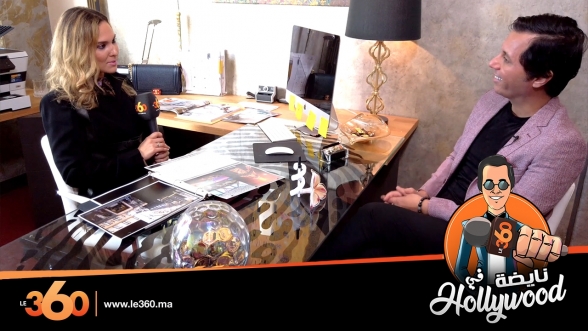
The fifth episode of the series “Nayda in Hollywood”, presented by Simo Benbachir on the 360 website in Arabic, featured Moroccan interior designer Fatyne River, a Casablanca native who moved to Paris and later to the United States, where she began a successful professional career.
With a degree in business administration and a Master’s degree in interior design and fashion design, Fatyne worked for several years at the French fashion house Chanel before deciding to found her own company specializing in interior design for restaurants and luxury hotels. She then created another fashion company for Hollywood celebrities who go to Paris to shoot their films.
And after having succeeded in convincing many American stars, and consolidating her position on the American market, Fatyne decided to open a branch of her company in Beverly Hills, a city of luxury.
Fatyne contributed to the renovation of the Eiffel Tower’s decorations after participating in a competition in France and winning her first prize. She also worked on the decoration of the famous Costa Bari hotel that American celebrities spend time at during their visits to Paris. She also renovated the presidential pavilion, reserved for foreign kings and presidents at the Four Seasons Hotel in Beverly Hills. She has also contributed to several other large-scale projects in many countries, including Turkey, Dubai, Ibiza, Thailand and the United Arab Emirates.
In her interview with Simo, Fatyne said that the Moroccan decor is very rich in compositions and chromatic combinations. That’s why her American clients love it, because they find it inspiring and exotic. So, they want to have it in every corner of their homes to be able to enjoy the sensations of rest that it provides as well as the fabulous diving into a country of magic and beauty.
Fatyne insists on using Moroccan fabrics and products to create authentic decorations, especially for leather lighting. In this regard, she points out that if “in Morocco, we find these lights seem to us to be objects of flat banality, the Americans, on the other hand, are fascinated by them, because they do not exist in their culture”.
Fatyne told Simo that nothing could stand in the way of anyone to succeeded in the United States, provided they were serious, persistent and of good reputation. She urged young Moroccans, obsessed with the images of celebrities on social networks, to invest themselves in their studies, to work hard to achieve similar successes to those of these celebrities, and to work, rather than spend their time looking at the successes of others.




Be the first to comment